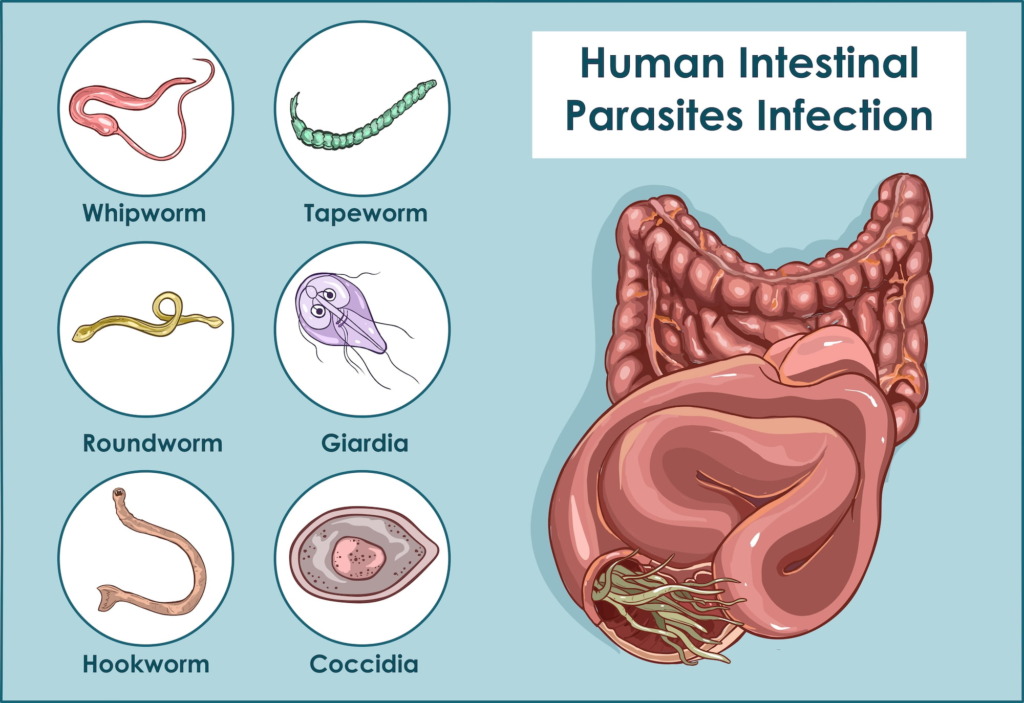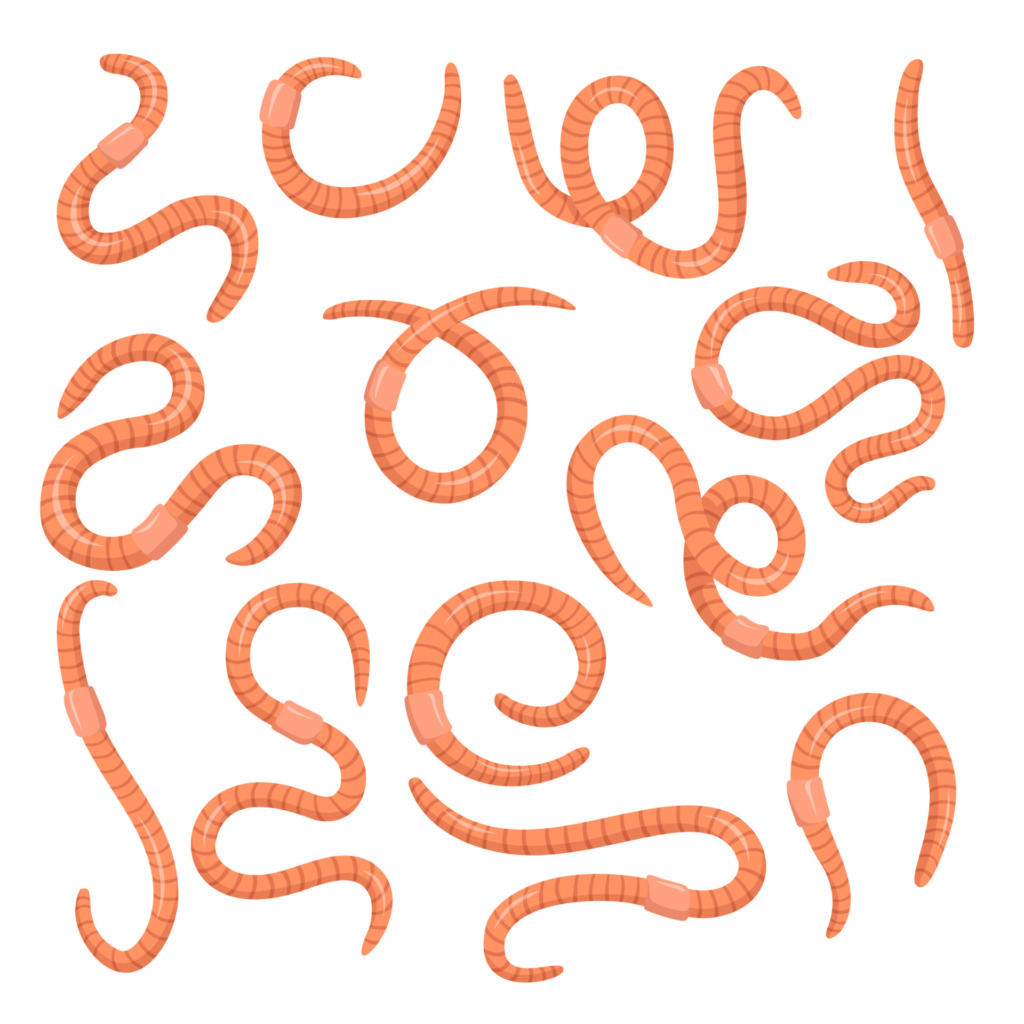What is Parasite?
Organisms known as parasites reside on or inside other host organisms and frequently cause harm to them. It is essential to identify the symptoms of parasite infections in order to start treatment as soon as possible and stop additional problems. It is more crucial than ever to comprehend how to recognize and treat parasite illnesses, as millions of people are impacted globally. Read on to learn about Signs You Have Got Parasite.
Understanding Parasite
Organisms that reside on or within a host organism are known as parasitic infections, and they frequently result in health problems such gastrointestinal disorders and PTSD. Known by many other names, parasitic worms or intestinal worms, are a common intestinal parasite that affect people and are found in tropical and subtropical areas. Anybody can contract these infections, regardless of gender, color, or financial level, and they may be more common in developed or developing nations.
People are frequently unaware of their parasite infections, which can lead to persistent health problems. It is crucial to check for the primary symptoms and indicators of parasites in humans in order to receive treatment. The majority of intestinal worm infections result in a minor illness that is manageable with medicine. It is critical to recognize these infections and, if required, seek appropriate medical attention.

Types and Categories of Parasites
Parasites can take many different forms, and each has its own traits and ways of spreading infection.
1. Protozoa
Protozoa are organisms with just one cell that can cause various diseases in humans. Notable examples are Plasmodium, the malaria-causing pathogen, and Giardia lamblia, which causes giardiasis. These tiny parasites can be extremely harmful and frequently flourish in contaminated water sources.
Usually, contaminated food or water is how protozoa enter a person’s body. Furthermore, certain protozoa are spread via insect bites. For example, mosquito bites from Anopheles infected insects transmit Plasmodium.

2. Helminths
Helminths are parasitic worms that are divided into three groups:
- Nematodes (Roundworms): These cylindrical worms, including Ascaris lumbricoides (giant roundworm) and Ancylostoma duodenale (hookworm), can cause a variety of digestive or gastrointestinal disorders.
- Cestodes: Cestodes, often known as tapeworms, are flat, segmented worms that can cause malnutrition when they grow large in the intestines. Examples of these worms are Taenia solium (pork tapeworm) and Diphyllobothrium latum (fish tapeworm).
- Trematodes (flukes): They are flat, leaf-shaped worms that are part of the Schistosoma species. Schistosomiasis is a disease that affects the intestines, liver, and other organs.
Helminths often have complex lifecycles that include multiple stages and hosts. Infection commonly occurs through the ingestion of larvae or eggs present in contaminated food, water, or soil. Some helminths, such as hookworms, can also penetrate the skin.
3. Ectoparasites
Ectoparasites are creatures that reside on the epidermis of the skin. These include:
- Lice: Tiny, wingless insects that can contaminate the body, pubic region, and scalp.
- Ticks: Ticks are arachnids that cling to the skin and feed on blood. They can carry diseases such as Rocky Mountain spotted fever and Lyme disease.
- Mites:Mites are tiny spider-like insects that crawl into the skin and cause severe itching and skin irritation. One species, Sarcoptes scabiei, is known to cause scabies.
Ectoparasites can spread different pathogens and lead to symptoms like severe itching, redness, rashes, and secondary bacterial illnesses from scratching.
Symptoms and Signs You Have Got Parasite
Parasitic infections can manifest through a range of symptoms, often affecting multiple body systems.
- Abdominal pain
- Diarrhea and constipation.
- Chronic fatigue or exhaustion
- Dehydration
- Digestive problems
- Skin Diseases and Issues
- Muscular and joint pain
- Vomiting
- Anemia
- Lack of satisfaction after meals
- Bruxism
- Bloating
- Insomnia
- Passing a worm in your stool
- Stomach pain or tenderness
- Headaches.
- Cognitive decline
- Rashes and itching
- Sores and lesions
- Weight loss
Causes and Risk Factors
Parasitic infections can be avoided by learning about the causes and risk factors.
1. Contaminated Food and Water: One of the main ways to become infected is by consuming food or water that has been tainted with parasites or their eggs. Proper food preparation and water filtration to remove any possible germs are examples of preventative measures.
2. Poor Hygiene Practices: Maintaining good personal hygiene is essential to lowering the risk of parasite infections. Examples of this include washing your hands frequently and using clean water sources.
3. Travel to Areas Where Parasites Are Common: Going to places where certain parasites are common makes it more likely that you will get sick. It is imperative to take precautions, such as staying away from contaminated sources and donning protective gear.
4. Immune-compromised: People who are receiving chemotherapy or have HIV/AIDS are among those with damaged immune systems, making them more vulnerable to parasite infections and perhaps exhibiting more severe symptoms.

Intestinal Worm Risk Factors
Children are especially vulnerable to intestinal worms because they frequently play in areas like school playgrounds and sandboxes that have polluted soil. The compromised immune systems of older persons also put them at higher risk.
Soil-transmitted worm infections are projected to affect 24% of the world’s population, according to the World Health Organization (WHO). Tropical and subtropical areas—namely, Sub-Saharan Africa, the Americas, China, and East Asia—are the most common locations for infections.
Due to poor sanitation and drinking water from tainted sources, those who travel to and reside in developing nations are most at danger.
Diagnosis and Tests
Treating parasite illnesses effectively requires an accurate diagnosis.
Stool Tests: By using a microscope to examine stool samples, it is possible to detect the presence of parasites or their eggs, which can help diagnose intestinal infections. Both protozoa and helminths can be detected through fecal testing, which involves examining your stool. Stool samples need to be taken before to using antibiotics or antidiarrhea medications, as well as prior to barium x-rays. It might take several stool samples to identify the parasite.
Blood Tests: Blood tests can identify the parasite causing an infection by detecting particular antibodies or antigens linked to parasitic infections.
Imaging Tests: Although this test is typically not necessary, your doctor may utilize barium x-rays to diagnose more severe parasite-related issues. Imaging methods can identify outward manifestations of parasite infections, like tumor growth, enlarged organs, or unusual lumps.
Scotch tape: Using the “Scotch tape” test, pinworms are identified by repeatedly putting tape to the anus and then examining the tape under a microscope to check for eggs.
Skin Biopsy: To pinpoint the precise parasite causing a skin infection and establish the best course of action, a biopsy may be carried out.
Treatment Options
Usually, a mix of prescription drugs, home cures, and lifestyle modifications is used to effectively treat parasite infestations.
Medication:
- Antiparasitic Drugs: Certain drugs, such as praziquantel for tapeworms and albendazole for roundworms, either target and kill parasites or stop their growth.
- Antibiotics: Antibiotics may be necessary for the treatment of secondary bacterial infections brought on by parasite damage.
Natural Remedies:
- Herbal Remedies: Some herbs, such as black walnut or wormwood, have antiparasitic qualities and can be used in addition to conventional treatments.
- Dietary Changes: Including immune-boosting foods like garlic or pumpkin seeds can help with healing and general health.
Lifestyle Adjustments:
- Improvements in Hygiene: Better personal and environmental hygiene habits can help stop the spread of parasites and avoid reinfection.
- Environmental Changes: You may help reduce the number of parasites by reducing moisture levels and taking care of cleanliness issues in your living space.
Preventive Measures
Safe methods and routine health monitoring are key to preventing parasite infestations.
Safe Food and Water Practices: Filtering water and cooking meat correctly are good ways to get rid of a lot of parasites and avoid getting sick.
Personal Hygiene: Frequent and thorough handwashing helps stop the spread of parasites, especially before eating and after using the restroom.
Protective Measures for Travel: Vaccinations (if available) and other preventive measures, such applying insect repellent, can lower the risk of infection when visiting high-risk locations.
Regular Health Check-ups: By detecting and treating parasite infections early on, routine health check-ups can improve outcomes and lower the chance of serious complications.



